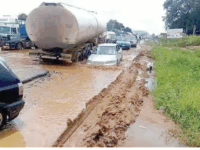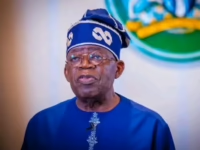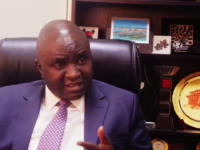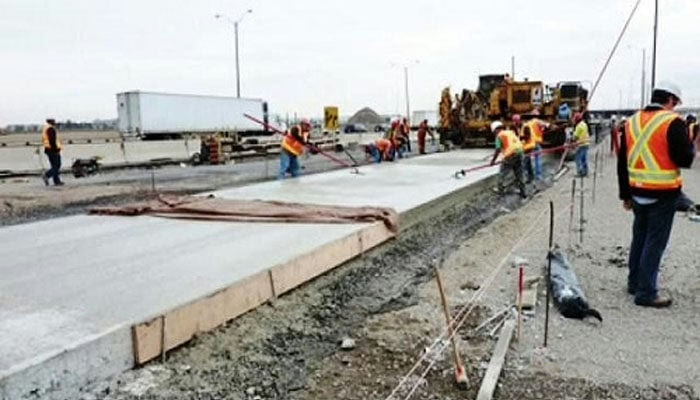Representatives from Nigeria’s organised private sector (OPS), alongside experts in construction and real estate, have advocated for the partial privatisation and concessioning of road construction and management nationwide. This call comes amid the country’s growing infrastructure gap and shrinking fiscal resources.
They argue that such a strategy would alleviate the government’s financial strain, accelerate project completion, and enhance the durability and efficiency of the national road network.
During a recent policy forum focused on infrastructure financing and real estate growth, these stakeholders collectively emphasized that Nigeria’s persistent road infrastructure challenges will remain unresolved unless the government adopts private sector-driven concession models, supported by stringent regulatory frameworks and transparency.
They highlighted that carefully crafted concession contracts could create a mutually beneficial arrangement, delivering safer, longer-lasting roads while allowing the government to concentrate on oversight rather than direct project management.
According to the group, implementing a public-private partnership (PPP) system-where private entities lease, operate, or maintain roads on behalf of the government-has the potential to revolutionize Nigeria’s infrastructure landscape. This approach would also bolster corporate social responsibility (CSR) efforts, generate employment, attract foreign capital, and enhance competitiveness within the construction industry.
Chudi Ubosi, chairman of the Association of Capital Market Valuers (ACMV), criticized the current infrastructure development model as inefficient, describing it as “budget-dependent and politically constrained.”
He pointed out that many road projects suffer delays due to bureaucratic hurdles linked to annual budget cycles, legislative approvals, and political interference.
“Federal road projects often languish in committee discussions for months or even years before funding is approved. By the time funds are released, inflation and currency devaluation have significantly diminished their value,” Ubosi explained.
He further argued that entrusting road construction and management to reputable private firms would eliminate these delays. “The private sector operates with agility, accountability, and a focus on results. When profitability and reputation are at stake, timely delivery becomes imperative,” he added.
Ubosi also noted that private sector involvement could foster innovation and the adoption of advanced engineering techniques, ensuring roads meet international quality standards.
With the government shifting its role to regulatory supervision, it can protect public interests through transparent concession agreements, while private companies guarantee cost-effective construction and ongoing maintenance. Beyond infrastructure improvements, stakeholders believe the economic benefits of such privatisation would be substantial.
Ubosi emphasized that private firms would need to engage local expertise for project execution and upkeep, thereby creating jobs and enhancing the skills of Nigeria’s construction workforce.
This, he said, would cultivate a more proficient labor pool and stimulate growth in related sectors such as materials production, logistics, and real estate development.
He also pointed out that the PPP model aligns with Nigeria’s broader economic diversification objectives by channeling private investment into non-oil industries. “This initiative transcends road building; it positions Nigeria as a leading construction and engineering hub in West Africa,” he remarked.
Danny Abboud, managing director of Hi-Tech Construction Company, hailed the proposed privatisation of road infrastructure as a transformative milestone for Nigeria.
“If executed effectively, privatisation and concessioning will ease the government’s financial obligations, allowing scarce public funds to be redirected toward vital sectors like education, healthcare, and security,” Abboud stated.
He highlighted that private investors possess both the capital and technical know-how to deliver roads that adhere to global standards. “Private sector participation ensures not only construction but also proper maintenance, which will boost tourism, attract investment, and improve connectivity along key economic corridors,” he added.
Abboud further explained that enhanced road networks would facilitate trade, lower transportation costs, and encourage foreign direct investment (FDI). However, he urged private entities to prioritize quality, transparency, and compliance with international best practices. “Delivering value for money must be non-negotiable for Nigerian road users,” he stressed.
OPS stakeholders underscored that while private sector engagement is crucial, the government must pivot to a role centered on robust regulation and policy guidance.
They recommended establishing an independent regulatory body tasked with overseeing concession contracts, ensuring compliance, and guaranteeing that tolls or user fees remain fair, transparent, and linked to performance metrics.
Proper governance, they argued, would prevent exploitation and keep concessioned roads accessible and affordable for all Nigerians. The OPS emphasized that concessioning should be viewed as a strategic partnership combining public accountability with private sector efficiency, rather than a complete abdication of government responsibility.
“The government must define clear rules of engagement, set measurable performance standards, and implement mechanisms for public feedback and contract evaluation,” one participant noted.
Addressing the preparedness of Nigeria’s construction sector for large-scale privatisation, Gbenga Ismail, immediate past chairman of the Nigerian Institution of Estate Surveyors and Valuers (NIESV), Lagos Chapter, raised alarms about the growing problem of unqualified practitioners in the built environment.
He lamented that the infiltration of unlicensed individuals has led to subpar construction, frequent road failures, and accidents. “Every professional body in the built environment bears some responsibility for allowing quackery to persist, resulting in poorly built roads and recurring infrastructure breakdowns,” Ismail said. He called for stricter enforcement and disciplinary measures against fraudulent professionals, emphasizing that combating quackery requires a comprehensive and sustained effort.
“To improve road quality, professional organizations must be empowered to enforce standards, penalize offenders, and ensure only qualified experts manage projects,” he asserted. Ismail also encouraged practitioners to adopt digital technologies, modern construction methods, and continuous professional development to remain competitive in a rapidly evolving global industry. “From AI-driven design to sustainable building practices, Nigerian professionals must advance to compete effectively and deliver value within a privatised framework,” he added.
In closing, Ubosi reiterated that the success of road concession initiatives in Nigeria hinges on transparency, fair competition, and sustainable frameworks that balance investor confidence with public welfare. He called for open tendering processes, public disclosure of contract terms, and regular performance evaluations.
“A well-designed concession agreement will not only improve roads but also foster public trust. The government must ensure this process is free from political favoritism,” he warned.
He also stressed the importance of mandatory environmental and social impact assessments for all concessioned projects to guarantee sustainability and adherence to international standards.






















